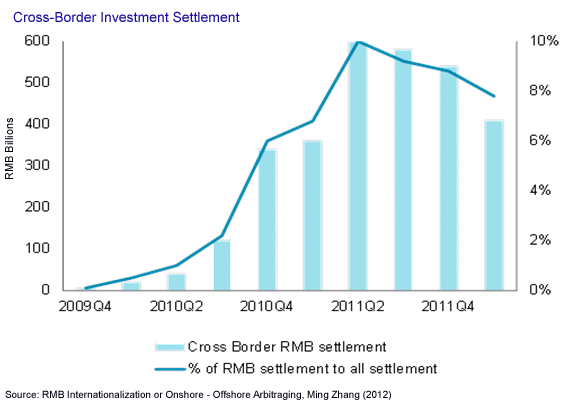Chinese Payments and Sanctions Compliance
Abstract
A survey-based study by Celent and sponsored by Dow Jones Risk & Compliance explores the growing importance of the Chinese Renminbi in international payments, and bank activities and future plans on and around the use of Chinese Commercial Code (CCC).
In the report, Chinese Payments and Sanctions Compliance, Celent studies the growing use of the Chinese currency in international trade settlement and technological challenges associated with handling and monitoring international payments. The report focuses particularly on the use of Chinese Commercial Code in international payments involving China.
China’s economy has grown rapidly over the last decade to become the world’s second biggest economy, largely propelled by its international trade. Yet China’s currency accounts for a small proportion of international trade settlement. Chinese authorities are making concerted efforts to internationalize their currency. Their efforts are bearing fruit, as observed from the RMB’s increasing use in cross-border trade settlement. China is also among the highest recipients of remittances in the world.

“Along with the formal inflow of funds, the size of illicit fund flows is also significant in China. This makes money laundering risk inherent in international RMB transactions,” says Arin Ray, an analyst with Celent’s Securities & Investments Group and author of the report. “Adoption levels of best practices in anti-money laundering (AML) are moderate in Chinese banks at present.”
There are a number of issues that make AML operations challenging in the Chinese context. Celent conducted a survey among different banks to understand the specific issues involved in dealing with Chinese names in international transactions. Findings of the report include:
- One major technological challenge in handling and monitoring international transactions lies in the area of use of Chinese names and Chinese characters and transliterating them for transaction monitoring purposes.
- Chinese Commercial Code represents significant compliance risks. CCC is commonly used in international payments, but is not widely applied to AML. Only some leading global banks have advanced use of CCC and use them in multiple processes.
- However, few banks are addressing this issue seriously at the moment as most banks await some industrywide standards and frameworks to emerge. In over half of the banks surveyed, CCC-related issues are handled manually by internal teams.
- The current regulatory requirements regarding CCC are minimal. Authorities need to pay adequate attention and develop industrywide standards to make CCC viable.
This 32-page report contains 18 figures and 4 tables.

